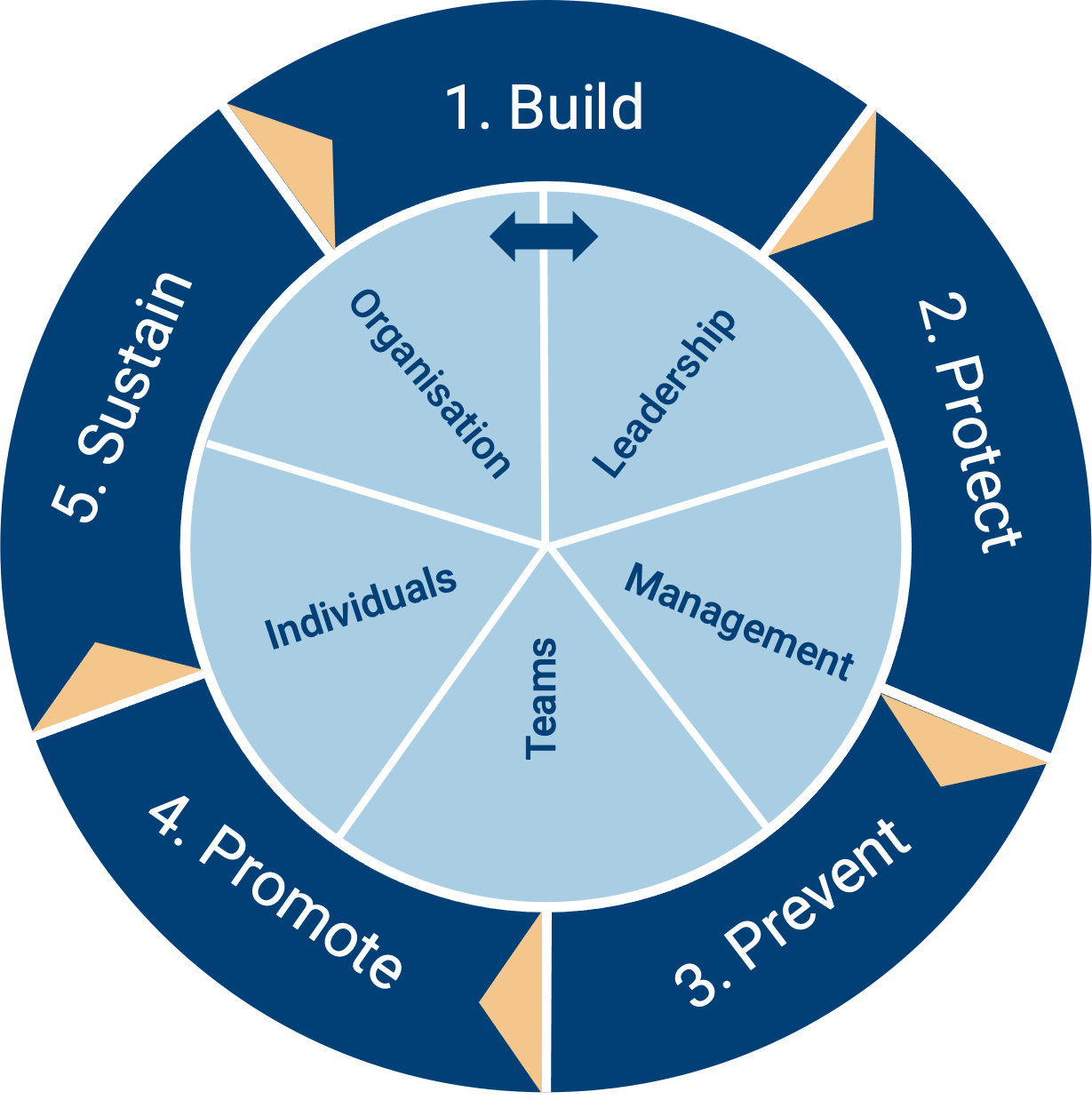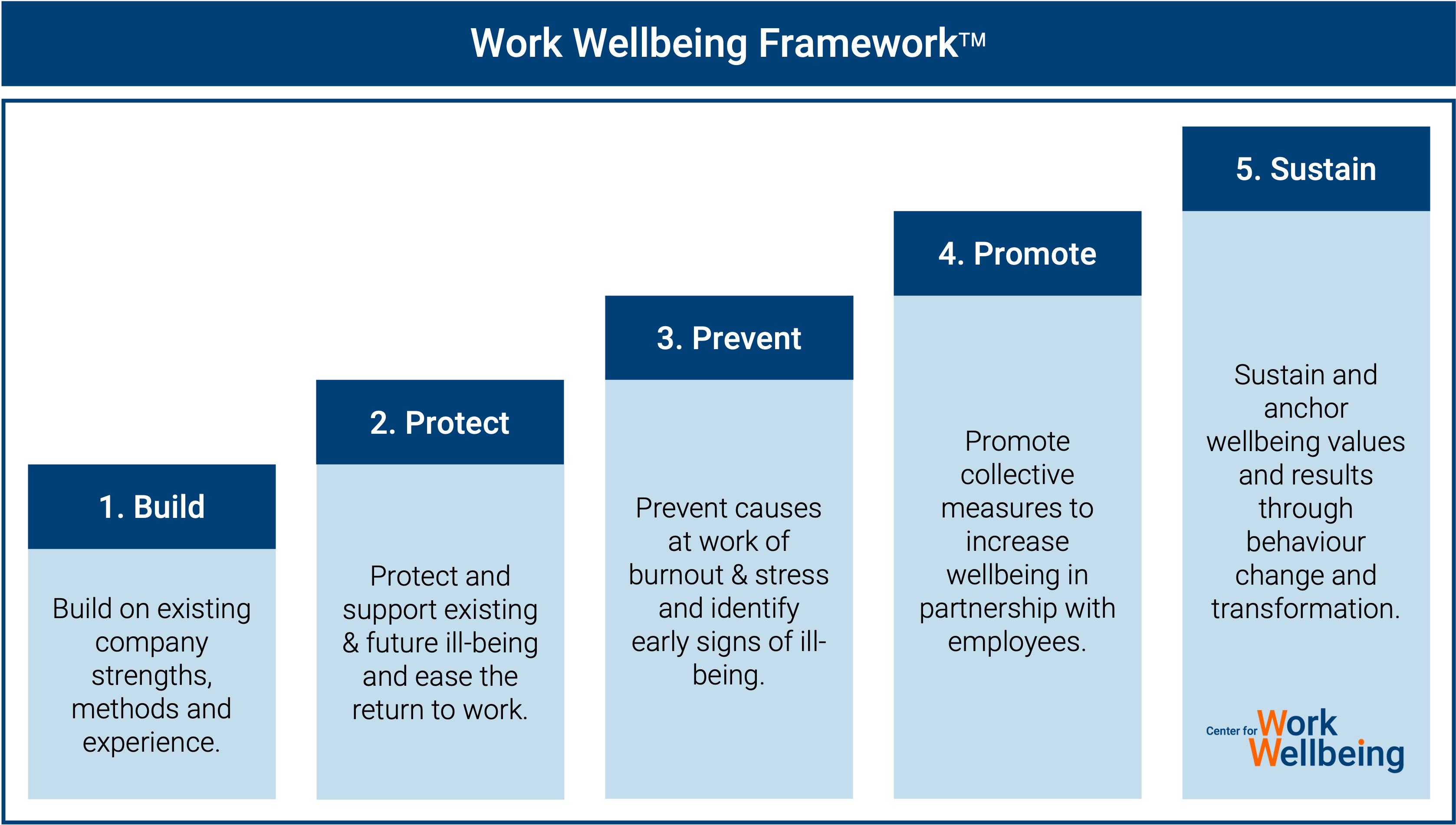Built on behavioural science and organisational psychology to develop, share
and exploit effective wellbeing solutions to benefit businesses and employees.

















Despite work wellness programmes, poor mental health continues to rise.
Ill-being at work is costing employers billions.
Poor mental health is causing substantial productivity losses.
Employee ill-being increases employee turnover.

44% of workers
in the EU suffer from poor
mental health symptoms.
$65 billion
in costs for employers
per year in UK alone.
€136 billion
reduction in productivity per
annum in the EU.
US$ 1 trillion
in productivity losses globally
Despite work wellness programmes, poor mental health continues to rise.
Ill-being at work is costing employers billions.
Poor mental health is causing substantial productivity losses.
Employee ill-being increases employee turnover.


44% of workers
in the EU suffer from poor
mental health symptoms.
$65 billion
in costs for employers
per year in UK alone.
€136 billion
For more information about the challenges of ill-being at work, please visit our resources.
reduction in productivity per
annum in the EU.
US$ 1 trillion
in productivity losses globally
14%
increase in
employee
attraction
Enhances
motivation,
commitment
& innovation
12%
increase in
productivity
12%
increase in
productivity
14%
increase in
employee
attraction
Enhances
motivation,
commitment
& innovation

Wellbeing increases productivity, reduces companies’ ill-being costs and builds staff resilience against future risk of ill-being.
All evidence points to focusing on wellbeing is the most impactful strategy for any organisation.
Learn more about the multiple benefits of employee wellbeing.
Zero evidence of benefits
from Wellness in study of 46,000 workers.
US$ 56b spent globally
on ineffective Wellness programmes.
Despite spending considerable sums of money on wellness, there is no effect on mental wellbeing.
At the same time, burnout, stress and depression are increasing.
Poor mental health poses the greatest risk to our overall wellbeing, surpassing physical health.
The absence of positive outcomes and the surge in ill-being have led us to create new solutions to address wellbeing in the workplace.
The result is our new framework to strengthen wellbeing.
Learn what science has discovered
about corporate wellness
Our Work Wellbeing Framework ™ is developed to tackle leadership and organisational challenges arising from the growing mental health crisis.
The framework offers a detailed but straightforward plan to enhance work wellbeing through five essential stages.
There are multiple interventions and initiatives to consider at each stage to address specific parts of the organisation, ranging from leadership to policies and managers to teams.
The goal of the Work Wellbeing Framework ™ is to provide companies with clarity and tools to improve the work lives of their employees.


The Work Wellbeing Framework™ offers solutions which each company can implement through their own resources or with our support for organisational and behaviour change.
The assessment of your organisation’s future framework will result in goals which align with your company’s values and strategies and allow for flexible integration based on organisational readiness.
This allows for high flexibility and control, as well as clarity over roles, responsibilities, and purpose.
The purpose of the Work Wellbeing Framework™ is to equip companies with clarity of their options at different stages of their organisational wellbeing.
Our approach is to build on each company’s organisational context.
What is causing wellbeing friction, or where does wellbeing flourish?
The framework sets out 5 stages to address different levels of employee wellbeing focus.
We work with our clients to assess where they are in the process and where to concentrate solutions for the maximum impact.
The result if flexibility and control over when to focus on the next stage.
There is a noticeable imbalance in the emphasis on physical health versus mental health in work policies, strategies and health & safety measures.
Our research and experience show that organisations struggle with identifying a systematic approach to overall wellbeing at work and are unsure about handling mental health.
Wellbeing is a multi-faceted concept that has been extensively studied in various scientific fields.
We have been tapping into all this research for years, and have identified what works and what doesn’t.
What leads to friction in wellbeing, or where does wellbeing prosper? The possibilities exist for organisational learning and future transformations.
Often small changes to how we work, the way we work together and how we manage others, can have a big impact on wellbeing.
Contact us to learn how our Work Wellbeing Framework™ could apply to your organisation.


Our center has been established to address the escalating problems with ill-being at work.
Our aim is to support companies improve their employee wellbeing through sharing
and applying effective solutions.
We are born out of a long-standing consultancy practice focussed on changing behaviours, work and workplaces in large corporations.
Reach out to us if you have questions about wellbeing at work.
Our DNA is based on behavioural science, organisational psychology and corporate practice.
We continually keep ourselves up to date with latest research in all of our practice areas and are keen to share our findings.
We are posting our research and practice findings on our resource pages.
Visit our blog and articles to learn more.

© 2024 Center for Work Wellbeing. All rights reserved.